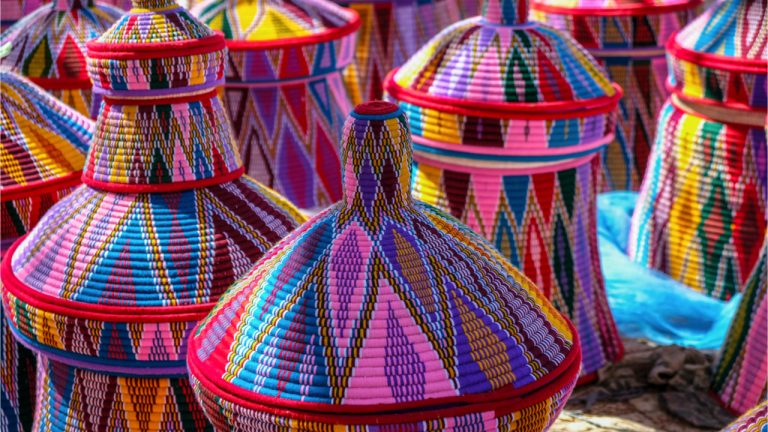A non-governmental organization (NGO), Save Tigray, has announced it will be using the proceeds from the sale of non-fungible tokens (NFTs) to support its goal of averting famine in Ethiopia’s war-torn Tigray region. According to Save Tigray, the NFTs, which are “based on interpreted photos of the tragedy,” will be sold on the charity organization’s NFT marketplace.
Making NFTs Based on Photos of Tragedy
According to a statement released on July 13, 2021, proceeds from the NFT sales will be donated to organizations that include the World Food Program, International Rescue Committee, UNICEF, and Save the Children.
Also in the statement, Save Tigray’s Mirna Saraswati explains how the NGO switched to the idea of raising funds via NFTs sales. Saraswati explained:
Last year we planned to create NFTs from Fair Trade Art created by women from Tigray. But the advent of the war in November put an end to those plans. So instead, we are making NFTs based on interpreted photos of the tragedy. We will sell them on our NFT marketplace, and donate the proceeds equally to four groups.
In early November 2020, an armed conflict pitting Ethiopian government forces against Tigray rebels broke out. Since then, the conflict — which has also drawn in forces from neighboring Eritrea — has left as many as 1.8 million people on the verge of famine. Already, this conflict is believed to have claimed the lives of tens of thousands, according to UNICEF.
Energy Efficient NFTs
Meanwhile, organizers of Save Tigray say they are hoping “to use the Tigray project as a prototype so that they can later create similar projects to address climate change, racial injustice, disease, and other issues.” Concerning the alleged inefficient energy of blockchain anchored digital assets, Save Tigray’s COO Savannah Partridge said:
“We’ve solved the biggest problem associated with them, which is energy usage. Our platform uses 10 million times less energy than the standard Etherium-based ones.”
Still, just like any NFT, the provenance of each work can be easily traced through the blockchain, explained Partridge. This, therefore, means “buyers can continue to use each image to raise more for the cause if they so choose.” In addition, the NFTs will earn royalties every time they are sold, thus “they can keep fundraising forever.”
Save Tigray’s Greater Objective
Partridge says in addition to using NFTs to highlight the desperate situation in Tigray, the NGO is also planning a publicity drive to make the public aware of the famine and quasi-genocide in Tigray. Partridge said:
“As much as we want to raise funds for victims, we really want to spread the news to millions. The Ethiopian government has announced that aid flights can resume from the capital, but so far none have been given approval. An outcry from the public can compel them to act.”
What do you think of Save Tigray’s idea of using NFTs to raise funds? Tell us what you think in the comments section below.
Bitcoin News
Altcoins, Blockchain, Energy Use, Ethiopia Tigray conflict, International Rescue Committee, NFT marketplace, NFTs, Non-fungible Token, SaveTigray, UNICEF, World Food Program

